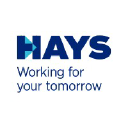Direct Service - (OPSEU)
- Application Deadline: May 5, 2025 -
Consider revitalizing your career and making a difference in your community by joining our team! WHAT WE'RE OFFERING:
-
What you'll be making -Starting rate for this role is$27.14per hour (Level 1 -- Direct Service), with a wage differential, based on regulation ($30.01per hour for Level 1 -- Direct Service, Regulated):
-
Successful candidates who are registered with one of the designated professional colleges (e.g. OCSWSSW, CNO, COTO, CRPO, CPSO, or CPO) will receive the wage differential for regulation
-
Successful external applicants will start at Level 1, with grid progression based on seniority up to Level 8 ($34.41 per hour for non-regulated, and $37.26 per hour for regulated)
-
For internal applicants, grid level placement will occur as per the Collective Agreement
-
When you'll work--
-
0.51 FTE Contract: 36 hours bi-weekly - Nights, including weekends
-
What your benefits will be - 9% in lieu of benefits
-
Your pension plan-- Immediately eligible for optional enrollment in the Healthcare of Ontario Pension Plan (HOOPP)
HOW YOU WILLBE MAKINGA DIFFERENCE: Direct Service:
-
Complete phone mental health and addiction assessments based on theory of crisis management including rapid response to identify:
-
the impact of psychiatric symptoms on functioning,
-
risk factors related to safety of client and others,
-
opportunities for de-escalation and stabilization
-
Establish a therapeutic relationship to maximize the benefits of engagement with the individual
-
Provide short-term follow-up and support
-
Coordinate and facilitate referrals to internal and external services and supports
-
Advocate as necessary, in order to facilitate access to services and supports with the objective of remediating the immediate crisis situation
-
Engage and work collaboratively with emergency services when it is determined that additional intervention is required
-
Assess barriers to successful community living (e.g. treatment options, transportation, finances, etc.)
-
Obtain information, as needed, from other relevant sources
-
Interact and provide support and assessment in a non-judgmental fashion and provide care that demonstrates sensitivity to individual diversity (e.g. culture, race, age, sexual orientation, gender, beliefs and values, etc.).
-
Support the individual in developing skills for self-advocacy to learn new behaviours and develop coping skills fostering healthy interdependence through limit setting
-
Provide health teaching and information regarding coping techniques and strategies, (e.g. grounding, breathing techniques, self-care, nutrition, sleep hygiene, techniques to enhance overall well-being, etc.)
Crisis Intervention:
- Provide short-term, psychotherapeutic intervention to assist individuals in gaining insight and improving coping skills within the framework of the crisis model
- Perform in a calm, competent and efficient manner in an emergency situation acknowledging the individual's need for empathy, privacy and dignity
- Utilize harm reduction principles to identify, reduce and remove risk factors
Crisis Follow-Up:
- Refer individuals for additional assessments as is determined to be necessary and / or appropriate under the circumstances
- Assist the individual to identify and connect with personal / natural supports
- Provide follow-up support via the phone and / or e-mail to provide resources, and act as a tool for successful safety planning and prevention of a future crisis
Coordination and Advocacy:
- Demonstrate a knowledge of community resources and its place within the mental health and addiction care system
- Assist in building positive working relationships across the service system including CMHA, emergency service partners(i.e. police) and other social or health care providers
- Participate in committees, working groups or situation tables as needed to promote effective service coordination and collaboration
- Participate in public education and advocacy and provide public demonstrations when required
- When appropriate, act as liaison with caregivers and / or service and support providers who are involved with the individual to facilitate a coordinated approach to service provision
Documentation, Privacy and Confidentiality
- Thoroughly review and accurately document risk factors
- Complete required documentation related to client as per CMHA TVAMHS standards, discipline-specific guidelines and standards and PHIPA legislation
- Complete other required documentation (e.g., monthly time sheets, vacation requests, education requests, travel claims, expense claims, etc.) as per the required time frames
- Maintain dual records, recording both in the format required by, and in accordance with the documentation and record storage policies and procedures of the CMHA TVAHMS and LPS
- Adhere to the privacy policies of, and privacy legislation respecting, LPS and CMHA TVAHMS; including the collection and disclosure of information, as well as undertaking responsibility for maintaining awareness of the unique differences between the privacy frameworks of municipal services and health services
- When necessary, compile documentation such as affidavits or will-say statements where required by respective policing partner or where compelled by court
- When necessary, testify professionally and accurately at hearings, trials and such other judicial or quasi-judicial proceedings as may be compelled from time to time, arising from nature of the work
WHAT YOU'LL NEED TO APPLY: Police Vulnerable Sector Check Requirements
We require the following qualifications:
- Post-secondary education in a relevant field of study (e.g. social work, psychology, or a related discipline(primary proof of credentials will be required during the hiring process i.e. original degree/diploma or official transcript)
- Valid driver's licence and access a a vehicle with adequate insurance to carry out job duties
- Clear, current Police Vulnerable Sector Check (PVSC)
- Demonstrated ability to attend work regularly
We prefer the following qualifications:
- Minimum of 3-5 years experience working in mental health, including a minimum of 2 years experience working in crisis intervention
- Experience with, and detailed knowledge of, mild, moderate and serious mental illnesses
- Experience working in a community-based setting, preferably with an established network of service and support resources
- An ability to assess level of risk with regards to participants
- Bilingual both official languages, preferred; préférence sera accordée aux candidats qui sont compétents dans les deux langues officielles du Canada
INTERNAL APPLICANTS:
Get your application in by -- May 5, 2025:

